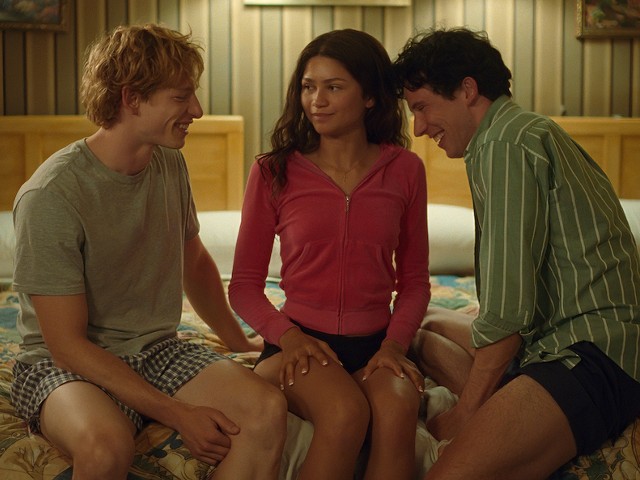If you’re a fan of true crime, then congratulations; you are just like tens of thousands of humans here in the United States who obtain a sort of morbid fascination with the worst of what people have done to one another. It’s a hugely popular genre, so it’s no wonder that streaming giant Netflix is leaning into that popularity with their hit series Monsters.
Not everyone is thrilled with the most recent season of Monsters, however. The family of Eric and Lyle Menendez have been very vocal about their displeasure with the way their story has been portrayed. They aren’t alone. The family members of Jeffery Dahmer’s victims have also expressed intense displeasure at being re-traumatized by the sensationalism that the “shockudrama” stirs up around the worst days of their lives. This upset begs the question: is it morally responsible to amplify the stories of notorious criminals for entertainment purposes, especially when doing so causes further trauma to the families?
To find the answer, let’s look at this… powerful statement from Joan VanderMolen, aunt to Eric and Lyle. “Ryan Murphy’s Monsters: The Lyle and Erik Menéndez Story is a phobic, gross, anachronistic, serial episodic nightmare that is not only riddled with mistruths and outright falsehoods but ignores the most recent exculpatory revelations. Our family has been victimized by this grotesque shockudrama. Murphy claims he spent years researching the case but in the end relied on debunked Dominick Dunne, the pro-prosecution hack, to justify his slander against us and never spoke to us.”
There’s more to the statement than that, but the long and short of it is that the family was never consulted in regard to the Netflix series. Stories that were unverified— an incest scene was created for the sake of the drama— and the sources that were relied on to informt the development of the story were largely prosecution leaning. The years of abuse that the brothers claim to have survived weren’t so much considered, nevermind treated with care.
To the family— and one would presume the Menendez brothers as well— the Netflix portrayal disrespects the truths that they hold to, and parades for entertainment the pain that they endured during the aftermath of the initial murders, the public trial that was a national story, and the continued pain of having loved ones behind bars— which is painful no matter what way you look at it.
There was a similar backlash when Monsters: The Jeffrey Dahmer Story was the shock du jour on Netflix. The families of Dahmer’s victims weren’t warned that the series was being made, nevermind that there would be dramatic portrayals of the traumatic events that they’d already lived through once. No opportunity to consent or decline to be included was offered to anyone whose loved one died at the hands of Jeffrey Dahmer.
With both seasons of Monsters, Ryan Murphy has been widely criticized for his lack of care for personal stories that have caused pain that is still deeply felt by the family of the Menendez brothers and the families of Jeffery Dahmer’s victims. In both instances, those affected have expressed profound displeasure that no attempt to contact the families involved in the actual incidents was made. The silence and lack of effort is… concerning.
In the end, True Crime shows are intended to entertain, not educate. Dramatic storytelling takes priority over factual accuracy in order to keep ratings up. The hyperfocus on the more gruesome details alone is enough to cause serious emotional harm to those who have already lived through the actual incident. Add to that the fact that the families of perpetrators and victims wind up being publicly scrutinized anytime the story of their loved one is told through the lens of sensationalism… is it not enough that it happened in the first place?
The Menendez family has made it known that there is new evidence that adds a layer of complication to the narrative, and supports the brother’s claims of lifelong abuse. These updates to the case went completely ignored in the creation of Monsters: The Lyle and Erik Menéndez Story.
So should these stories be told? Maybe. But do they have to be presented as the circus component of the bread and circuses that we love so much? No. The public may have a morbid fascination with murder stories, but that shouldn’t outweigh the family’s right to heal without having their wounds opened again without their consent.
True crime has its foothold in pop culture. There is no putting that toothpase back in the tube. But maybe, just maybe; we could hold those who tell the stories to a higher moral standard.
Or in the very least, we can ask that they do the bare minimum by seeking consent from those who will be in the line of public fire once their nightmares are presented as our next weekend binge.







